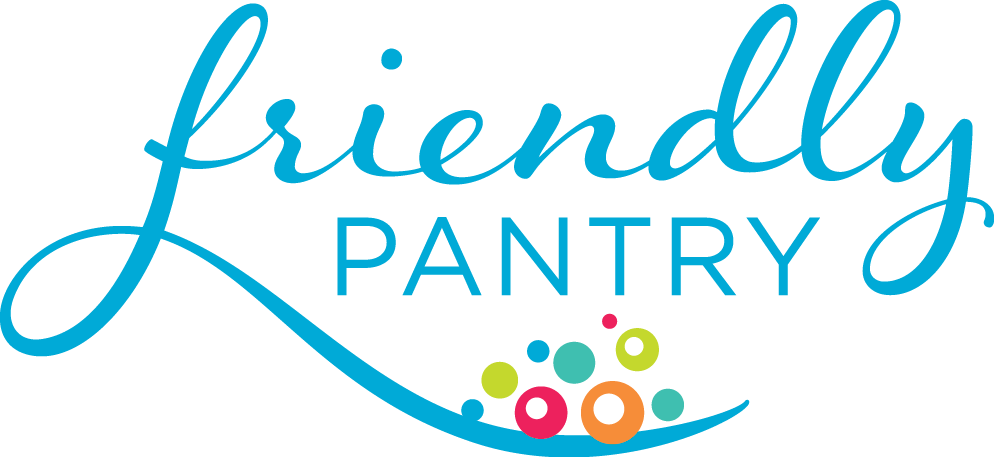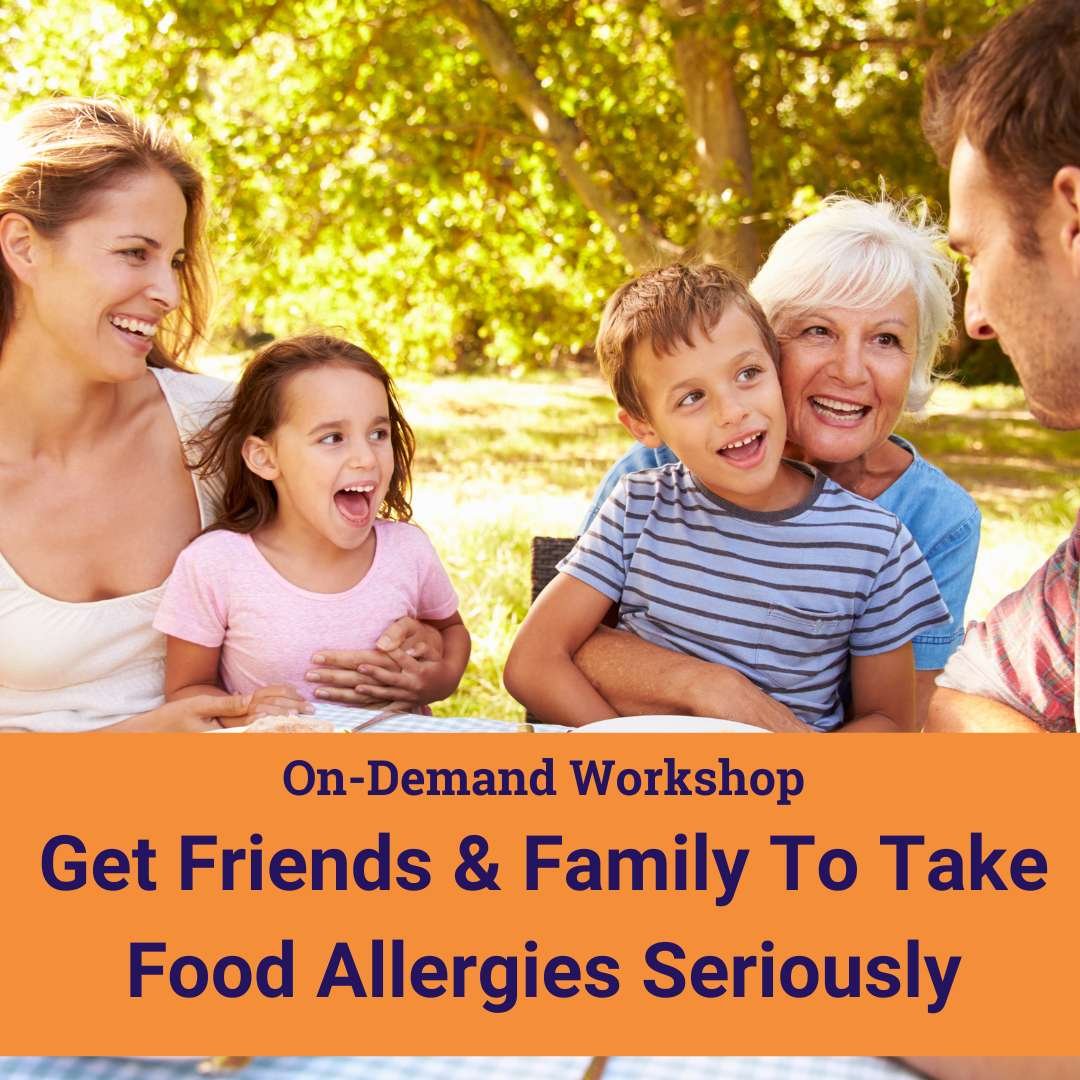Worry-Free Tips For Navigating Playdates With Food Allergies
Updated Sept. 2024
So your little one has food allergies, and you’re wondering how food allergies affect going to other people’s homes.
This is the post for you!
First of all, I’ve been where you are. I know the fear and uncertainty, but I want to share what I’ve learned so you don’t have to go through it alone like I did. So when you’re asked for that first playdate after your little one is diagnosed with food allergies, you’ll know what to do.
Have you listened to the Food Allergy Made Easy podcast yet? There are weekly topics perfect for the stage you’re in right now.
You can listen to this episode and get added personal stories and experiences here:
1. Start with humility and graciousness.
Here’s the thing, when it comes to food allergies, fear can overshadow everything you do. Because of this, it can cause requests to feel more like demands, even if it’s not your intention. Add to that the feeling of inconveniencing others and even the host resisting, it can be hard to maintain a gracious tone, and these tensions can add up.
So here’s a couple of tips to help keep a gracious tone.
Keep in mind where that person is coming from. The idea of food allergies is likely new to the host, and it can be super overwhelming. Be clear, and give simple suggestions to help. You can even break it into bite-sized pieces to simplify things.
Don’t try and scare them into accommodating your little one. If they don’t seem receptive, then this may not be the best friend to hang out with anyway. But keeping a kind, matter-of-fact tone when talking about food allergies will show that you’re not just being overprotective, and this will give you credibility.
Ensure you show the host that it’s a team effort and you are there to help them. If they feel like you’re in it together, they won’t feel as overwhelmed or like you just dumped a huge responsibility on their shoulders.
If you want a done-for-you template that is gracious, clear and effective, check out the Social Event Survival Pack.
These comprehensive templates will help you not only with playdates, but birthday parties and all the holiday events coming soon. It will be your go to resource to take the stress out of social events so you can let your child make friends, instead of worrying about food allergies all the time.
Learn more about Social Event Survival Pack here.
2. Figure out the allergy-friendly snacks.
I found that providing the allergy-friendly snack made things easier for everyone to save the host from searching for safe snacks or trying to make something.
Even so, I know this can get burdensome after several playdates, because it’s not easy providing all the food, and it gets expensive to buy all those allergy-friendly muffins and cookies!
To save money and time, I started to do “bulk baking” sessions where I would make large batches of safe muffins, cookies and loaves that I could freeze, and then I would pull them out the morning of a playdate.
Doing this was such a lifesaver! It reduced my stress and the cost so that playdates were easier to attend.
3. Don’t forget the epinephrine and anaphylaxis plan.
At the playdate I told you about at the beginning of this episode, we had our epinephrine, but not our anaphylaxis plan.
It’s so important to take your epinephrine and emergency plan with your wherever you and your child go. The emergency anaphylaxis plan will give you the confidence to know what to do if signs of a reaction start to show up and the epinephrine could save your child’s life.
Don’t leave home without these two things!
4. Figure out the stage your child is in and decide what to talk to the host about.
In the beginning, when your child is a baby/toddler, parents often attend playdates. If your little one is in the touching/mouthing stage, which my daughter was when we had our playdate reaction, you want to be especially careful.
Although I told the host about our allergies, I never even thought to ask about whether their family eats in the playroom and if there could be traces of allergens there.
If there are traces of your LO’s allergen in the toy room, you have a couple of options. You could ask to play in another area OR invite them to your house instead. Honestly, it’s usually easier to invite them to your home.
If you want to prepare your child for more independence as they grow, grab my free Food Allergy Kids Empowerment Guide. It’s free!
Is my child ready to go to playdates alone?
You may be wondering when you can let your allergic child go to a playdate by themselves.
This is kid-dependent and will depend on a few things. I’ve got some important questions to consider, and again, you’ll want to write these down, so grab that paper and pen!
Here they are:
Do they know NOT to put toys objects and hands in their mouth, without reminders?
Does your child wash or wipe their hands before eating, without being told?
Do they mention their allergies to others on a regular basis?
Can they read and if so, are they good about asking to read ingredient labels? If they can’t read, are they good about not eating unless it has been approved by a trusted adult?
Do they self-carry their epinephrine?
Do they go by the rule, no epinephrine, no eating?
If you answered yes to all of these, they might be ready to try going on a playdate without you.
Alternatively, if you’ve talked to and trust the other parent enough to either take care of or watch that they do these things, then they might be ready to try going to a playdate without you.
If your child is going alone, remember that the parent watching the kids needs to understand your child’s emergency plan and know how to administer the epinephrine.
If you want help explaining food allergies to playdate hosts, whether you are going with your child OR NOT, grab my Social Event Survival Pack for an easy-to-understand rsvp template that will take the stress out of explaining food allergies.
5. Talk to the playdate host about food allergies.
This may seem obvious, but you would be surprised how many parents hope that they can take care of their child’s allergies and not mention it to the hosts at all. But I encourage you to talk to the playdate host about food allergies as soon as possible. I know it seems easier not to rock the boat, but your host needs to know, and it’s easier to talk about it in the beginning. Trust me, it becomes really awkward if you don’t say anything and then 3 months down the road they invite you to a birthday party and you have to say “Oh I forgot to mention food allergies”. Its awkward, but it also makes it seem like it’s not important, and that’s not a good impression to leave with hosts.
If you’re feeling nervous and want help explaining allergies and getting new friendships started on the right foot, I have a playdate rsvp template in the - Social Event Survival Pack. This template pack is a game-changer and makes any social event safer and less stressful. You’ll use it for years.
Conclusion
If food allergies have been holding you back from playdates, I hope this episode makes playdates doable. Or, if you’ve been enjoying all the playdates already, I hope you learned something new today to help make it safer and easier. You Got THIS, MAMA!
Does this blog post help you feel confident navigating a playdate with food allergies? Let me know in the comments the best tip you learned from this post. I’d love to know!
Do you know I have a low-cost series of workshops & templates designed to help you with the biggest food allergy struggles?
Social Event Survival Pack- Your tool to make playdates and birthday parties with food allergies less stressful.
Get Over The Fear of Trying New Foods - Feel calm instead of nauseous so you can give your child the new foods your doctor recommended.
School Allergy Plan Template - Your detailed guide to keeping your child safe and included at school.
Food Allergy Travel Workshop & Planning Pack- Our family has traveled worldwide with multiple severe food allergies. Learn my BEST tips and get all the planning checklists and planning templates you need for a trip with food allergies.
Dining Out With Food Allergies - Make dining out as safe as possible and feel confident knowing when it’s safe and when to leave.







